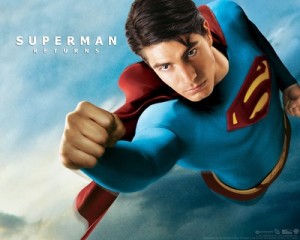 Lost is one of the most successful and entertaining programs in television history. The writers are brilliant, conjuring a storyline that is uniquely mysterious, yet somehow believable enough to hold the attention of dedicated viewers for six years. Those who have watched from day one have become addicts, perpetually obsessed with the idea of seeing the show through to its end. The program spawned an online phenomenon as well, as viewers began taking part in discussions on message boards and countless websites dedicated to solving the conundrum. Questions such as, “What is the island?” and “What is the black smoke?” have tortured not only dedicated viewers, but those who lost (no pun intended) interest long ago.
Lost is one of the most successful and entertaining programs in television history. The writers are brilliant, conjuring a storyline that is uniquely mysterious, yet somehow believable enough to hold the attention of dedicated viewers for six years. Those who have watched from day one have become addicts, perpetually obsessed with the idea of seeing the show through to its end. The program spawned an online phenomenon as well, as viewers began taking part in discussions on message boards and countless websites dedicated to solving the conundrum. Questions such as, “What is the island?” and “What is the black smoke?” have tortured not only dedicated viewers, but those who lost (no pun intended) interest long ago.
Perhaps of more interest to critics, however, is the mystery of what exactly makes this show so popular. This is also a mystery that plagues ABC’s program developers. Lost has inspired numerous rather unsuccessful “spin-offs,” such as Flash Forward, V, and most recently Happy Town. These programs implement the same writing techniques, the most obvious being the shroud of mystery and the suggestion of supernatural influence. The sublime (or what cannot be grasped/comprehended by the human mind) has always been attractive to us. Readers, critics, scholars, and viewers feed off this idea, and professional writers/developers are well aware of it. Therefore, the mark of any successful television series (outside of comedic sitcoms) is its dabbling in the paranormal or, perhaps more accurate, its reliance upon what cannot be easily understood. Examples of this ideal include X-Files, Twin Peaks, and Heroes. The sciences of war, government, and politics are other examples of the sublime. Shows like Alias, 24 and M*A*S*H delve into these subjects, although M*A*S*H served more as a relief from the terrors of war, offering comedy instead of the brutality and turmoil commonly associated with war.
So, then, why is it that Lost has entertained such widespread and long-term success, while other programs continue to fade into obscurity? Why did people lose interest in Daybreak? Why has the Heroes franchise all but fizzled out? Why can’t viewers stay interested in Flash Forward or V, despite their best attempts at liking these programs? They’re all, in some way, re-adaptations of the same plot structure. So what is it, then? The vagueness and rhetoric of these questions suggest complex answers, of course, but one such answer may be found in the show’s function as a whole. M*A*S*H was wildly successful because it arrived on the heels of the Vietnam War, a time of intense political and social turmoil in America. People needed an outlet – a reason to smile. M*A*S*H let them laugh at war. This brilliant move eventually culminated with the series finale, the most watched event in television history (a title that has since been surpassed by the 2010 Super Bowl).
Lost, like M*A*S*H, was born during a time of political and social turmoil. But instead of immersing us in a straightforward story about government and politics, the writers took a different approach. They took into account two facts: a fictional series about literal politics would be overkill; and technological advances play a vital role in America’s social make-up. So, the writers capitalized on the mystique of the show and started an official discussion board (check out http://www.thefuselage.com). They also implemented little “Easter Egg” games that could be played online, commonly referred to as “The Lost Experience.” In short, they used the internet to their advantage, and the public bought into it. The television show became more than just a show – it became a sensation that anyone could take part in.
What most people do not realize, however, is that Lost is a political and social allegory in which the writers took a fictional group of people, cast them onto an island away from all government, and let them develop their own society. This, in the face of the political turmoil that so markedly defines the 2000s in America, gave our society something to smile about and dream about. Viewers have had the pleasure of watching the birth and growth of a new society, and in turn have created and flourished within online societies birthed by the show. This is brilliant marketing and a vital reason why Lost has enjoyed such consistent popularity for six seasons.
Another aspect that sets Lost apart from similarly structured television programs is the impeccably complex cast of characters. There is something inherently human about the show that draws viewers in deeper, and this ideal is clearly outlined in this wide array of characters. Viewers have come to know these characters’ pasts through a bevy of flashbacks and flash-forwards. They’ve cheered for them, or hated them, or sympathized with them. Perhaps most importantly, viewers have recognized themselves in these characters, and have therefore played a vital role in helping them come alive on the screen. This is the movement that defines the show itself, and the very thing that will lead to its legend. It will be remembered as the television show that came to life, and gave people in our country something to look forward to when they most needed it.
Lost, in essence, is a show about relationships. It embodies the struggle of relationship maintenance, whether pertaining to a lover, an acquaintance, an enemy, or – perhaps most obviously – one’s father. Lost is about both faith and science. It is about forgiveness and letting go. It is about acceptance and moving on. All of these things are characteristics which are essential to our country’s well-being. Therein may lie the writers’ true intentions. If so, this revelation may be the key to solving the crux that is Lost. Could it also be, then, the key to overcoming this strenuous age we live in? If so, then Lost is the most important television show of all-time, and its series finale (May 23, 9pm EST) deserves more attention than both M*A*S*H and the Super Bowl combined.
 Nothing’s more horrific than a big bug that won’t die. Nothing’s funnier than a douchebag going as himself for Halloween. Why not mix the two?
Nothing’s more horrific than a big bug that won’t die. Nothing’s funnier than a douchebag going as himself for Halloween. Why not mix the two? Wear this one if you’re a meatbag.
Wear this one if you’re a meatbag. Beer pong’s all the rage these days. Be a conformist. Let guys toss their balls at you.
Beer pong’s all the rage these days. Be a conformist. Let guys toss their balls at you. Everyone knows you’re a wiener. Might as well go as one.
Everyone knows you’re a wiener. Might as well go as one. Okay, I know, it’s not very original. But you’re about as witty as the undead, so just roll with it.
Okay, I know, it’s not very original. But you’re about as witty as the undead, so just roll with it. Remember the 80s? Remember when Count Chocula had friends? Remember when you had friends? Get them back with this masterpiece!
Remember the 80s? Remember when Count Chocula had friends? Remember when you had friends? Get them back with this masterpiece! I wonder how many purple nurples you’ll get. If you move that nurple down a little, it won’t be such a bad thing.
I wonder how many purple nurples you’ll get. If you move that nurple down a little, it won’t be such a bad thing. Chicks will love it. Men will envy you. And everyone will know you’re really packing a 3-incher.
Chicks will love it. Men will envy you. And everyone will know you’re really packing a 3-incher. Remember all those times you wanted to show chicks your banana? Well, wear this, and they won’t call you creepy…or maybe they will. But at least they can’t see your face!
Remember all those times you wanted to show chicks your banana? Well, wear this, and they won’t call you creepy…or maybe they will. But at least they can’t see your face! Dominate. Become the coolest m-fer around. Be remembered. Be legendary. Nothing can stop the Grimace.
Dominate. Become the coolest m-fer around. Be remembered. Be legendary. Nothing can stop the Grimace.






